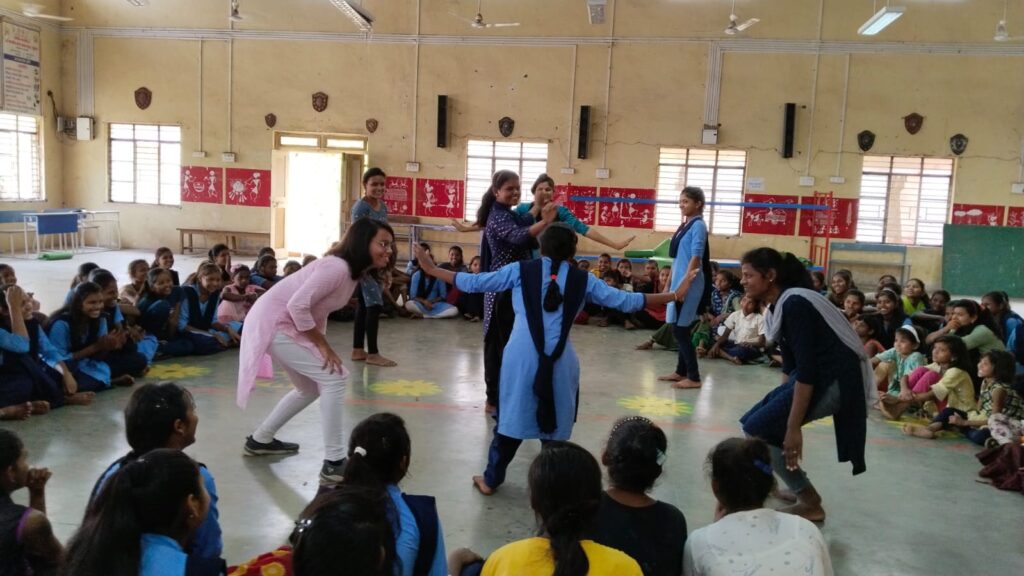Women empowerment program in melghat
Women and girls have always been told what they can or cannot do, how they should behave, and what they can wear with little or no decision-making power over their bodies, choices, and lives. Young girls and women experience issues such as discriminatory practices, control over mobility with lack of access to public spaces, and gender norms reinforced through sociocultural interactions embedded within formal and informal institutions, throughout their lives. In order to ensure that women and girls are recognized as individual rights-bearers, challenge existing stereotypes, address negative discrimination, and are able to exercise control over their bodies and sexuality, Development Organization Of Rural (DOOR) designed a community-level intervention, My Body, My Voice program, with girls from all socio-economic background to work on issues of gender, sexuality, sexual and reproductive health and rights, and women’s rights.Development Organization Of Rural (DOOR) has initiated direct work with adolescents and young girls in 2021.While working with girls Development Organization Of Rural (DOOR) have realized how sport can be used in a rights-affirming way to talk about restrictive social norms, sexuality, sexual and reproductive health, and rights.
I am a fat girl. People have always teased me about my body, my weight, my clothes and my style. When I joined the IMB program, everyone said how can a fat girl play football. But, I didn’t give up. I stayed on and practiced. Today I want to tell everyone that I can play and do everything that others can and I am proud to be who I am.
——–Vaishnavi Deshmukh, Melghat Maharashtra.
Sports is a way to talk about sexual and reproductive health, and rights for two reasons: first, it breaks gender stereotypes around who can and should play sports, and second, it can be used as an effective and fun medium to initiate a conversation with girls about sensitive yet important topics of mobility (accessing a public space in order to play sports), bodily autonomy, choice (what sport to play, where to play it, what to wear), consent, and pleasure (do I enjoy playing sports? Why do I enjoy it? what do I dislike about it?). These discussions then become starting points for deeper conversations around sexuality and rights.
Development Organization Of Rural also works with the parents and families of the girls enrolled in the program and other stakeholders in their communities to create a supportive and enabling environment for the girls to exercise their rights. Participants of the program also create sustainable support systems by working collaboratively with older cohorts to guide the younger girls in their respective locations.


